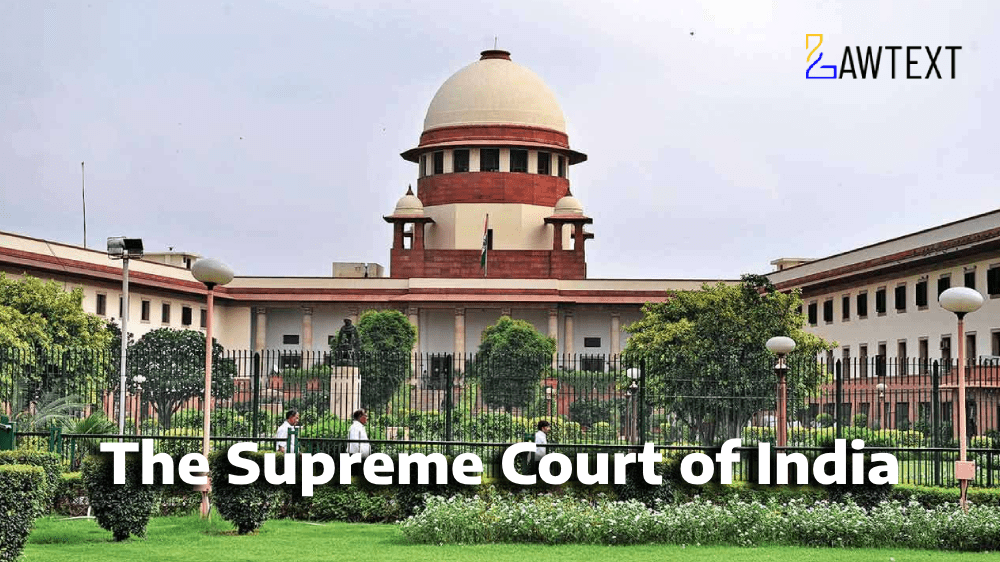

The Supreme Court allowed the appeal, setting aside the High Court’s order and reinstating the arbitral award in its entirety. The Court held that:
a. The arbitral tribunal had jurisdiction over Respondent No. 1 under BSE Bye-law 248(a) based on the oral agreement for joint and several liability. (Para 32(i))
b. The High Court incorrectly reappreciated evidence and exceeded its jurisdiction under Section 37. The arbitral award was not perverse or patently illegal. (Para 32(ii))
Relevant Paras:
Jurisdiction under BSE Bye-law 248(a): Paras 13, 19
Scope of Section 37: Paras 26, 30
Joint and Several Liability: Para 29
Adjustment of Accounts: Paras 30, 31
Major Acts:
Arbitration and Conciliation Act, 1996 (the Act) – Sections 7(4)(c), 16, 34, 37
Bombay Stock Exchange (BSE) Bye-laws, 1957 – Bye-laws 248(a), 247A, 227(a)
SEBI Guidelines – Regulation of Transactions Between Clients and Brokers, dated 18.11.1993
Keywords:
Arbitration – Joint and several liability – Oral contract – Bombay Stock Exchange Bye-laws – SEBI Guidelines – Jurisdiction – Perversity – Patent illegality – Section 34 – Section 37
Facts:
Nature of the Litigation: The appeal arose from a dispute between a stock broker (Appellant) and a married couple (Respondents) regarding the liability for a debit balance in the wife’s trading account. The Appellant claimed that the husband (Respondent No. 1) was jointly and severally liable for the losses incurred in the wife’s account based on an oral agreement.
Remedy Sought: The Appellant sought to recover Rs. 1,18,48,069/- with interest from both Respondents, claiming joint and several liability.
Reason for Filing the Case: The arbitral tribunal had held both Respondents jointly and severally liable, but the High Court, in a Section 37 appeal, set aside the award against Respondent No. 1, holding that the arbitral tribunal lacked jurisdiction and that the award was perverse and patently illegal.
Previous Decisions: The arbitral tribunal had ruled in favor of the Appellant, holding both Respondents liable. The High Court single judge upheld the award, but the division bench set aside the award against Respondent No. 1.
Issues:
Jurisdictional Issue: Whether the arbitral tribunal had jurisdiction over Respondent No. 1 under BSE Bye-law 248(a) for the debit balance in Respondent No. 2’s account, based on joint and several liability? (Para 9(i))
Scope of Judicial Intervention: Whether the High Court correctly exercised jurisdiction under Section 37 of the Act in setting aside the arbitral award against Respondent No. 1 on grounds of perversity and patent illegality? (Para 9(ii))
Submissions/Arguments:
Appellant’s Arguments:
a. Respondent No. 1 did not dispute the arbitration agreement and participated in the proceedings, thus waiving any jurisdictional objection. (Para 7.1)
b. The Respondents constituted a ‘single entity’ for trading purposes, and the oral agreement for joint liability was incidental to the transactions on the stock exchange. (Para 7.2, 7.3)
c. The High Court erred in reappreciating evidence and exceeding the scope of Section 37. (Para 7.4)
Respondents’ Arguments:
a. The arbitral tribunal lacked inherent jurisdiction over Respondent No. 1, as the oral agreement was a private transaction not covered by BSE Bye-law 248(a). (Para 8.1, 8.4)
b. The Respondents were separate legal entities with distinct accounts, and the transfer of funds between accounts violated SEBI Guidelines. (Para 8.2, 8.3)
Ratio:
Jurisdiction under BSE Bye-law 248(a): An oral agreement for joint and several liability in stock trading transactions falls within the scope of arbitration under BSE Bye-law 248(a), even if the agreement is not in writing. (Para 13, 19)
Scope of Judicial Intervention under Section 37: Courts cannot reappreciate evidence or interfere with the arbitral tribunal’s findings unless the award is perverse or patently illegal. The High Court exceeded its jurisdiction by reappreciating evidence. (Para 26, 30)
Joint and Several Liability: The arbitral tribunal’s finding of joint and several liability was based on evidence, including the conduct of the parties and oral representations, and was not perverse. (Para 29)
Adjustment of Accounts: The transfer of funds between the Respondents’ accounts was valid under BSE Bye-law 247A and did not require express written authorization. (Para 30, 31)
Citation: 2025 LawText (SC) (2) 100
Case Number: CIVIL APPEAL NO. OF 2025 ARISING OUT OF SLP (C) No. 18393 OF 2021
Date of Decision: 2025-02-10
Case Title: AC CHOKSHI SHARE BROKER PRIVATE LIMITED VERSUS JATIN PRATAP DESAI & ANR.
Before Judge: [PAMIDIGHANTAM SRI NARASIMHA J. , SANDEEP MEHTA J.]
Appellant: AC CHOKSHI SHARE BROKER PRIVATE LIMITED
Respondent: JATIN PRATAP DESAI & ANR.